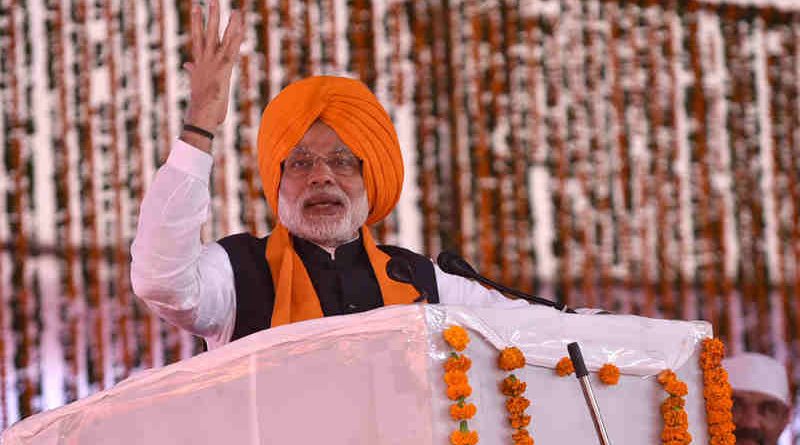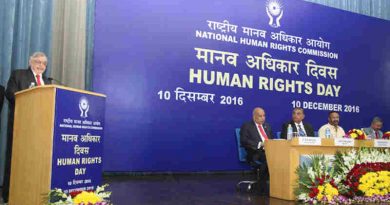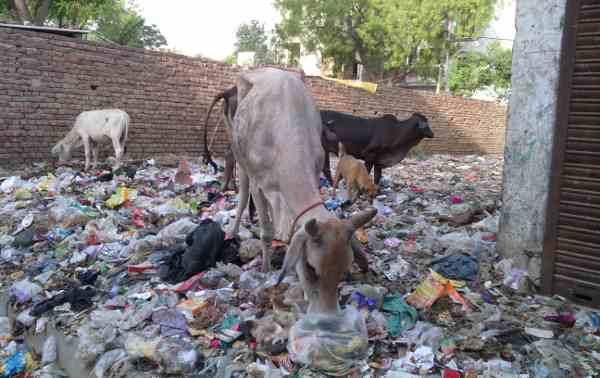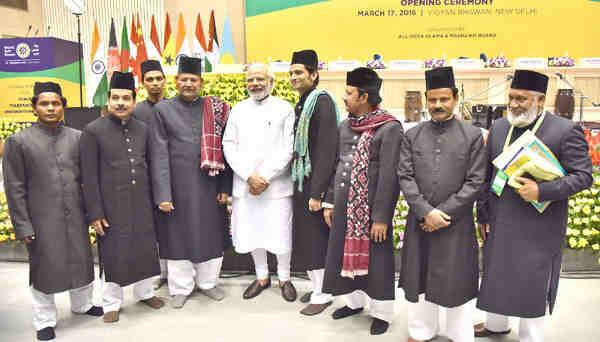U.S. Resolution Asks Modi Govt to Protect Religious Freedom of All Residents

The U.S. House resolution comes close on the heels of the similar observations made by German Chancellor Angela Merkel who expressed her concern over the persisting human rights violations being committed by India in Kashmir.
By Rakesh Raman
A bipartisan resolution introduced in the U.S. House of Representatives has urged India to end the restrictions on communications and mass detentions in Jammu and Kashmir (J&K) as swiftly as possible and preserve religious freedom for all residents.
Introduced by Democrat lawmaker Pramila Jayapal and her Republican colleague Steve Watkins on Friday (December 6), Resolution 745 has specified a number of steps that the Indian government must take.
It urges the Government of India to ensure that any actions taken in pursuit of legitimate security priorities should respect the human rights of all people and adhere to international human rights law. The resolution advises the Indian government to swiftly release arbitrarily detained people in J&K.
The U.S. House resolution comes close on the heels of the similar observations made by German Chancellor Angela Merkel who expressed her concern over the persisting human rights violations being committed by India in Kashmir. Merkel – who was recently on a 3-day visit to India had raised the Kashmir issue and the hardships that the people of Kashmir have been facing for the past few months.
The U.S. House resolution asks India to refrain from conditioning the release of detained people on their willingness to sign bonds prohibiting any political activities and speeches.
“The Indian government must quickly lift restrictions on cell phones and internet access, release arbitrarily detained people, protect free speech and peaceful protest, and condemn all religiously motivated violence at the highest levels across India,” said lawmaker Pramila Jayapal in her tweet.
The Indian government must quickly lift restrictions on cell phones and internet access, release arbitrarily detained people, protect free speech and peaceful protest, and condemn all religiously motivated violence at the highest levels across India.
— Rep. Pramila Jayapal (@RepJayapal) December 8, 2019
As the Indian government has blocked entry into occupied Kashmir, the resolution asks the government to allow international human rights observers and journalists to access J&K and operate freely throughout India, without any threats. It also suggests that the Indian government should condemn all religiously motivated violence, including the violence which targets religious minorities.
HUMAN RIGHTS VIOLATIONS IN KASHMIR
Meanwhile, a new UN report reveals gross human rights violations by India in Kashmir. Rupert Colville, a spokesperson for the UN High Commissioner for Human Rights Michele Bachelet, said in a press note that the UN human rights office is extremely concerned that the population of Kashmir continues to be deprived of a wide range of human rights and it urges the Indian authorities to unlock the situation and fully restore the rights that are currently being denied.
Currently, Kashmir is facing extreme human rights violations being committed by the Indian security forces, as the government headed by Prime Minister (PM) Narendra Modi has abrogated Article 370 which gave special privileges to the people of J&K.
Expecting backlash from the Kashmiris, the Modi government had imposed curfew in Kashmir and millions of people (most of them are Muslims) have been locked in their homes since August 4, a day before revoking Article 370 for J&K.
Recently, a United States (U.S.) Senator from the Democratic Party claimed that the Indian authorities denied him permission to visit Kashmir, which has been forcefully occupied by the Indian security forces.
Senator Chris Van Hollen – who was in India in October – said he wanted to visit Srinagar in Kashmir to assess the extent of human rights violations being committed by India, but he was not allowed to go to the troubled valley.
According to a report published in The Washington Post, Van Hollen is one of 50 members of U.S. Congress who have expressed concern over the situation in Kashmir, which is a disputed territory between India and Pakistan.
The Senator said that the Indian government did not want him to see what is happening in Kashmir, adding that if you have nothing to hide then there is nothing to fear by allowing visitors to travel in Kashmir.
It is stated that India has deployed nearly 900,000 security people to control unarmed Kashmiris (nearly 80% are Muslims), and nearly 80,000 civilians have been killed in the conflicts during the past 7 decades.
The Modi government’s annexation of Kashmir is a unilateral, authoritarian move, which is expected to make Kashmir a veritable inferno because most people of Kashmir do not want to live under the Indian rule where Modi is the ruler.
Today, nearly 2 billion Muslims of the world expect the global community – including the U.S. – to save the Muslims of Kashmir who are being treated as slaves by the Modi government.
By Rakesh Raman, who is a national award-winning journalist and social activist. He is the founder of a humanitarian organization RMN Foundation which is working in diverse areas to help the disadvantaged and distressed people in the society. He also creates and publishes a number of digital publications on different subjects.





